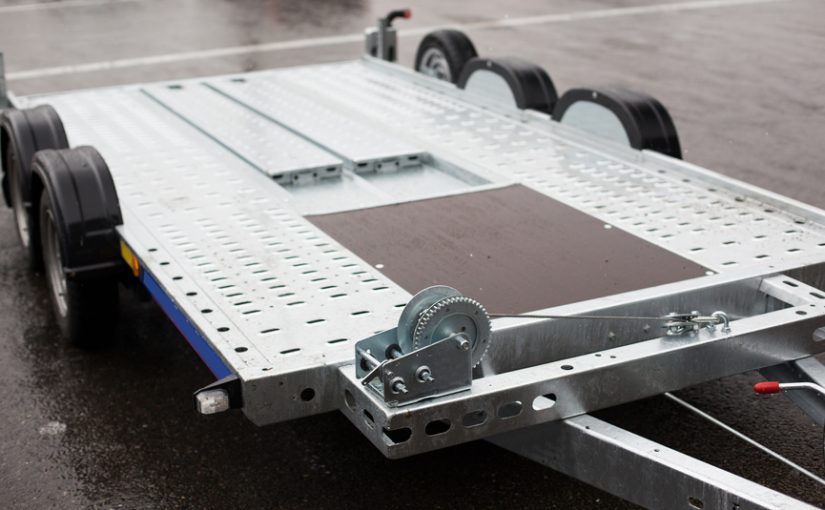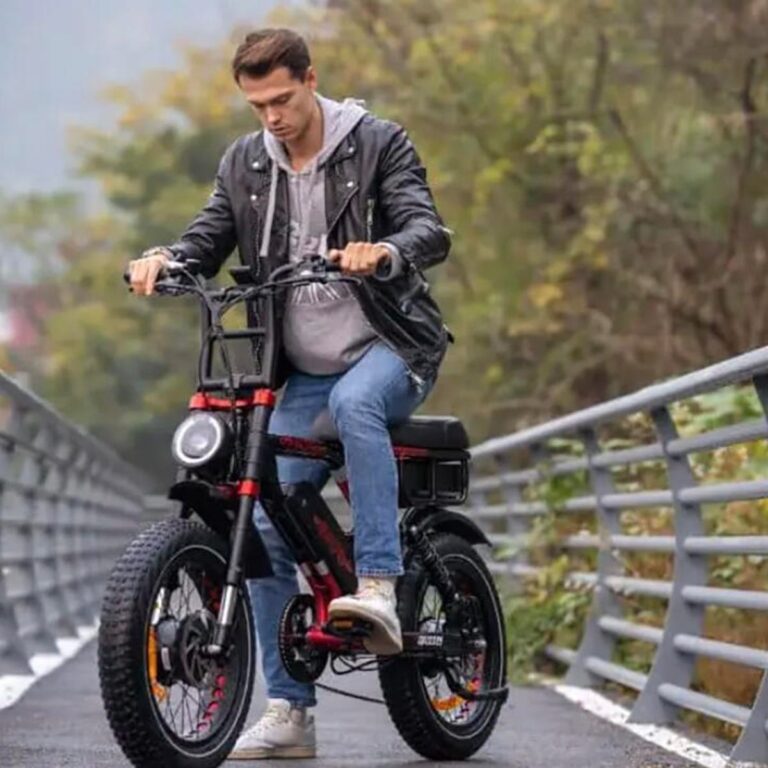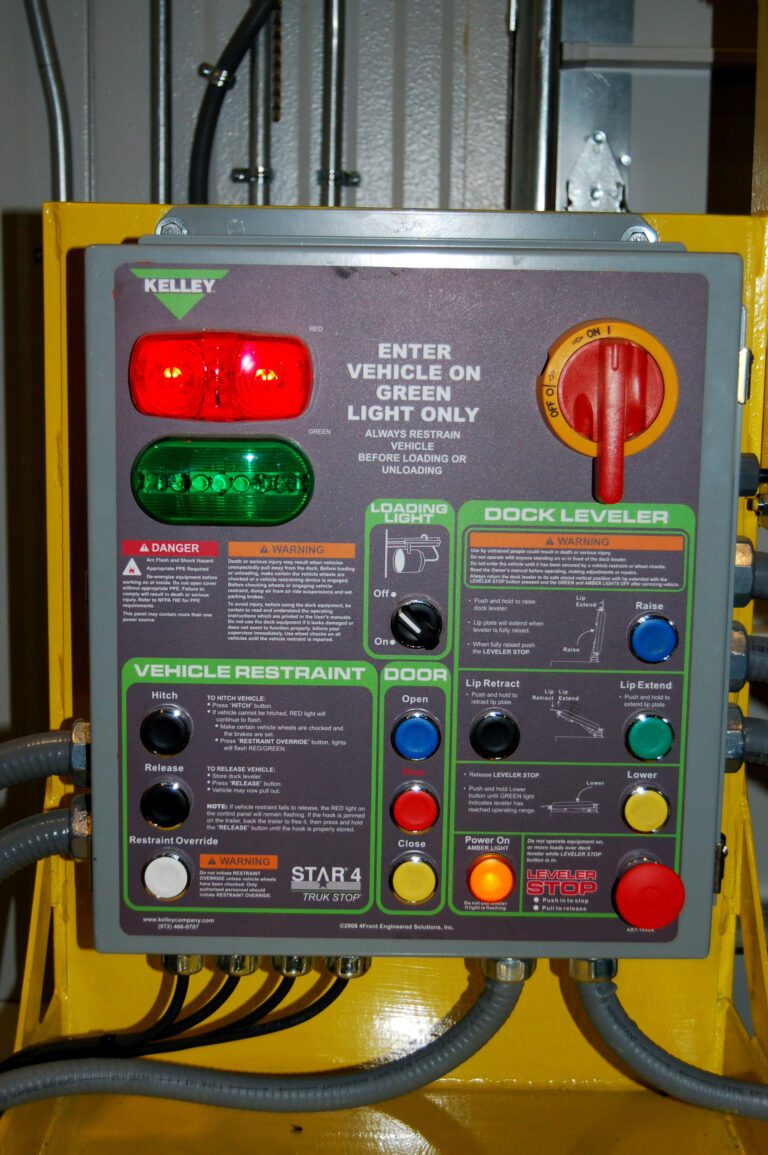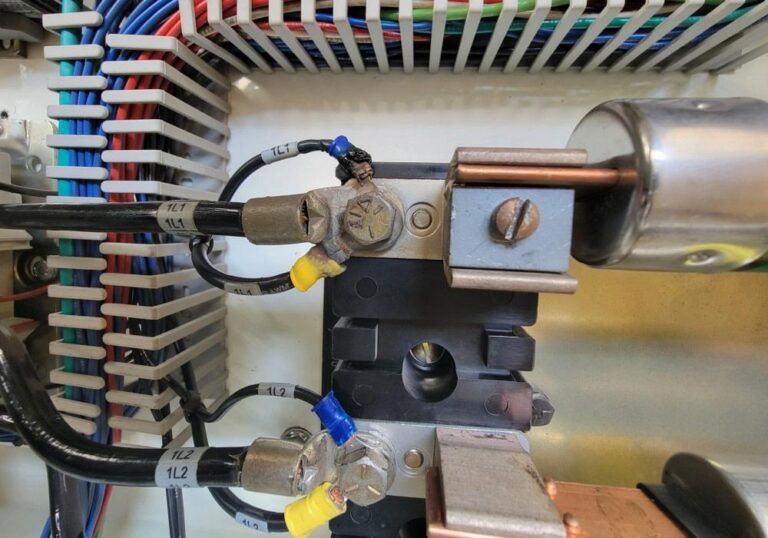Proportional Vs Time-Delayed Trailer Brake Controllers: Which is More Effective?
Proportional trailer brake controllers provide immediate and precise braking response based on the pressure applied to the tow vehicle’s brake pedal. On the other hand, time-delayed trailer brake controllers have a pre-determined delay before they engage the trailer brakes.
Trailer brake controllers play a crucial role in ensuring safe towing experiences. Understanding the difference between proportional and time-delayed controllers can help you choose the right device for your needs. Proportional controllers, also known as inertia-based controllers, use built-in accelerometers to detect changes in the tow vehicle’s speed.
This allows them to activate the trailer brakes with the same intensity, providing a smooth and synchronized braking experience. In contrast, time-delayed controllers apply a pre-set amount of braking power after a fixed delay from when you step on the tow vehicle’s brakes. When choosing between the two, consider the size and weight of your load, as well as your personal preferences for braking responsiveness. Ultimately, selecting the appropriate brake controller will ensure a safer and more controlled towing experience.

Credit: www.amazon.com
Understanding Proportional Brake Controllers
How Proportional Brake Controllers Work
Proportional brake controllers are a crucial component of trailer braking systems, as they provide a seamless and efficient way to synchronize the braking power between the towing vehicle and the trailer. Unlike time-delayed brake controllers, which offer a consistent level of braking force regardless of the situation, proportional brake controllers adjust the braking force based on the deceleration of the towing vehicle.
This ensures that the trailer brakes are applied in proportion to the towing vehicle’s braking, resulting in a smooth and more controlled braking experience.
Here are the key points about how proportional brake controllers work:
- Brake pressure sensing: Proportional brake controllers utilize built-in sensors to detect the deceleration of the towing vehicle. These sensors measure the rate of deceleration and send signals to the trailer brakes accordingly.
- Proportional output: Based on the inputs from the sensors, the brake controller sends proportional electrical signals to the trailer brakes. This means that as the towing vehicle slows down, the braking force applied to the trailer increases in proportion to the deceleration.
- Responsive braking: Proportional brake controllers offer a responsive braking experience by adjusting the braking force in real-time. This allows for smoother stops, reduced wear and tear on the brakes, and improved safety.
- Customization options: Many proportional brake controllers come with adjustable settings, allowing you to fine-tune the brake response to suit your specific towing needs. This level of customization ensures optimal braking performance for different trailer loads and road conditions.
Benefits Of Proportional Brake Controllers
Proportional brake controllers offer several advantages over time-delayed brake controllers. Here are the key benefits:
- Enhanced safety: Proportional brake controllers provide a more natural and synchronized braking experience between the towing vehicle and the trailer. This results in shorter stopping distances, better control, and improved overall safety on the road.
- Reduced wear on brakes: By adjusting the trailer brakes in proportion to the vehicle deceleration, proportional brake controllers help distribute the braking force more evenly. This prevents excessive strain on the towing vehicle’s brakes, extending their lifespan and reducing maintenance costs.
- Smooth braking: With the ability to respond in real-time to changes in deceleration, proportional brake controllers deliver smoother and more gradual braking. This eliminates the jerking or grabbing sensation often experienced with time-delayed brake controllers.
- Versatility: Proportional brake controllers can be used with a wide range of trailer types, including travel trailers, rvs, boat trailers, and horse trailers. Their adaptive nature ensures consistent braking performance regardless of the load or road conditions.
Real-World Examples Of Applications And Effectiveness
Proportional brake controllers have proven to be highly effective in various real-world towing scenarios. Here are some examples:
- Heavy trailers: When towing heavy trailers, such as horse trailers or utility trailers filled with equipment, proportional brake controllers play a crucial role in providing the necessary braking power without compromising safety. The proportional output ensures that the braking force is appropriately applied, even with a significant load.
- Emergency braking situations: In sudden braking situations, proportional brake controllers shine. They quickly recognize the rapid deceleration of the towing vehicle and apply the trailer brakes accordingly, assisting in maintaining stability and control.
- Uneven road surfaces: Roads with uneven surfaces can pose challenges for towing vehicles. Proportional brake controllers adapt to these conditions by adjusting the braking force smoothly, compensating for variations and promoting more consistent braking performance.
- Steep downhill descents: Proportional brake controllers excel on steep downhill descents, where maintaining control and preventing trailer sway are vital. By adjusting the braking force in sync with the vehicle deceleration, they help prevent the trailer from pushing the towing vehicle and potentially causing accidents.
Proportional brake controllers provide a reliable and effective solution for achieving synchronized and controlled braking when towing trailers. Their ability to adapt to different towing conditions and enhance safety makes them a valuable asset for any trailer owner.
Time-Delayed Brake Controllers: An Overview
Time-delayed brake controllers are a type of trailer brake controller that operate based on a predetermined time delay between the brake pedal being pressed and the trailer brakes engaging. Here’s what you need to know about time-delayed brake controllers:
- Time-delayed brake controllers are a popular choice among trailer owners due to their simplicity and affordability.
- These controllers send a preset amount of power to the trailer brakes after a specified delay, ensuring that the trailer slows down gradually when the tow vehicle brakes are applied.
- They are typically installed in the tow vehicle’s dashboard and connected to the trailer’s electrical system.
- One of the defining features of time-delayed brake controllers is the ability to manually adjust the delay and intensity of the braking action.
- They are suitable for towing lighter loads and trailers with fewer axles, such as utility trailers, small boats, and camping trailers.
- The time-delayed brake controllers function well in most towing situations, offering a consistent and controlled braking experience.
- However, it’s important to note that they may not provide the same level of precision and seamless braking as proportional brake controllers in certain circumstances.
Comparing Time-Delayed Controllers To Proportional Controllers
When comparing time-delayed brake controllers to their proportional counterparts, there are a few key differences to consider:
- Time-delayed brake controllers operate based on a preset delay, whereas proportional brake controllers adjust the braking force in real-time based on the braking behavior of the tow vehicle.
- Proportional brake controllers provide a more immediate and proportional response to the braking action, resulting in smoother and more precise braking.
- Time-delayed controllers require manual adjustment of the delay and intensity settings, while proportional controllers automatically adapt to changes in braking conditions.
- Proportional brake controllers are typically recommended for heavier loads and trailers with multiple axles, as they offer enhanced control and safety.
Advantages And Limitations Of Time-Delayed Brake Controllers
Time-delayed brake controllers have several advantages, but they also come with certain limitations. Here’s a breakdown:
Advantages:
- Simple and user-friendly design, making them easy to install and operate.
- Affordable option for those on a budget.
- Ability to manually adjust the braking power, allowing for customization based on trailer weight and towing conditions.
- Suitable for towing lighter loads and trailers with fewer axles.
Limitations:
- Lack of real-time braking force adjustment may result in less precise and seamless braking, particularly in emergency situations.
- May not provide the same level of control and safety as proportional brake controllers when towing heavier loads or trailers with multiple axles.
- Limited functionality and adaptability compared to their proportional counterparts.
Overall, time-delayed brake controllers offer a cost-effective solution for towing lighter loads, but they may not be the ideal choice for those seeking optimal control and braking performance in all towing scenarios.
Factors To Consider When Choosing Between Proportional And Time-Delayed Controllers
When it comes to selecting the right brake controller for your trailer, there are several factors you should consider. The choice between proportional and time-delayed controllers will depend on various aspects, such as your towing experience and skill level, the type and weight of the trailer, road and weather conditions, and the cost and compatibility with your towing vehicle.
Towing Experience And Skill Level
- If you are an experienced and skilled tower, a proportional brake controller might be the better option for you.
- Proportional controllers are more sophisticated and provide a smoother and more controlled braking experience.
- They sense the deceleration of the tow vehicle and apply the trailer brakes accordingly, offering a more responsive and proportional braking force.
- On the other hand, if you are a less experienced tower, a time-delayed brake controller can be easier to operate.
- Time-delayed controllers allow you to set a specific delay time before the trailer brakes engage after you apply the tow vehicle brakes.
Type And Weight Of The Trailer
- The type and weight of your trailer can also influence your choice of brake controller.
- Proportional controllers are generally recommended for heavy trailers or trailers with inconsistent weight distribution.
- They provide better control and can adjust the braking force based on the specific trailer weight, ensuring a safer and more stable towing experience.
- Time-delayed controllers are suitable for lighter and more evenly balanced trailers.
- These controllers provide a preset, fixed amount of braking force regardless of the trailer weight.
Road And Weather Conditions
- Consider the road and weather conditions you frequently encounter during towing.
- Proportional brake controllers excel in situations where you may encounter varying road surfaces or inclement weather.
- These controllers can adapt to changing conditions and adjust the braking force accordingly, providing enhanced safety.
- Time-delayed controllers work well in stable road and weather conditions, where the braking force doesn’t need frequent adjustments.
Cost And Compatibility With Towing Vehicle
- Budget and compatibility are crucial considerations when choosing a brake controller.
- Proportional controllers tend to be more advanced and therefore, often come with a higher price tag.
- If you’re looking for a more economical option, a time-delayed brake controller might be the better choice.
- Additionally, check if the controller is compatible with your towing vehicle and its brake system to ensure proper functionality.
Considering these factors will help you make an informed decision when choosing between proportional and time-delayed trailer brake controllers. Tailoring your choice to your towing experience, trailer type and weight, road and weather conditions, as well as your budget and compatibility needs, will ultimately result in a safer and more enjoyable towing experience.
Effectiveness Of Proportional Brake Controllers
In-Depth Analysis Of How Proportional Brake Controllers Improve Safety
Proportional brake controllers are an essential component of a trailer braking system, designed to improve safety and enhance the overall towing experience. Let’s delve into the key aspects that make proportional brake controllers effective:
- Accurate braking response: Proportional brake controllers deliver braking force in direct proportion to the tow vehicle’s braking input. This means that when the driver activates the brakes, the trailer brakes receive the appropriate amount of force, resulting in a smooth and proportional braking response.
- Enhanced control and stability: By providing proportional braking force, these controllers help maintain stability and control during towing. The trailer and tow vehicle brake simultaneously, preventing issues such as jackknifing or trailer sway. This additional control ensures safer and more predictable towing experiences.
- Reduced stopping distance: Proportional brake controllers help reduce the overall stopping distance when towing. By applying the appropriate amount of braking force to the trailer, they ensure that the entire rig comes to a halt efficiently. This feature is especially crucial when dealing with heavier or larger trailers.
- Customizable braking settings: Many proportional brake controllers offer customizable settings, allowing drivers to adjust the brake sensitivity to their preference. This feature ensures a more personalized braking experience and accounts for variations in trailer weight or road conditions.
Reactivity And Sensitivity In Braking Response
Proportional brake controllers excel in their reactivity and sensitivity, providing precise and instantaneous braking response. Here’s why these qualities are essential:
- Quick response time: Proportional brake controllers are designed to respond quickly to changes in the towing vehicle’s braking system. When the driver applies the brakes, these controllers activate the trailer brakes immediately, ensuring a synchronized and efficient braking process.
- Sensitivity to braking force: These controllers are highly sensitive to the braking input, allowing for precise adjustments. Whether the tow vehicle is lightly decelerating or coming to an emergency stop, proportional brake controllers ensure the appropriate amount of braking force is distributed to the trailer.
- Smooth and controlled braking: The reactivity and sensitivity of proportional brake controllers result in smooth and controlled braking, minimizing the likelihood of sudden jolts or jerky stops. This contributes to a more comfortable and safe towing experience, particularly when hauling delicate cargo.
Case Studies And Testimonials Showcasing The Effectiveness Of Proportional Controllers
The effectiveness of proportional brake controllers is further supported by numerous case studies and testimonials from satisfied users. Here are some notable examples:
- John, an experienced rv enthusiast: “ever since i switched to a proportional brake controller, i’ve noticed a significant improvement in both safety and overall handling of my trailer. The braking response is precise and smooth, even during sudden stops. I wouldn’t tow without one.”
- Sarah, a professional hauler: “as a professional hauler, i rely on my equipment for safe and efficient transportation. Proportional brake controllers have surpassed my expectations. The ability to fine-tune braking sensitivity ensures optimal performance with every load, no matter the weight or road conditions.”
- Mike, a long-distance traveler: “i recently upgraded to a proportional brake controller for my cross-country trips, and the difference is remarkable. With the proportional braking response, i feel more in control of my trailer, especially during long stretches of highway driving. It’s made a tremendous impact on my peace of mind.”
With compelling evidence from case studies and testimonials, it’s evident that proportional brake controllers are highly effective in improving safety, enhancing braking response, and providing a smoother towing experience.
Effectiveness Of Time-Delayed Brake Controllers
Evaluation Of The Effectiveness Of Time-Delayed Brake Controllers In Different Scenarios
Time-delayed brake controllers are a popular option for trailer owners looking for a cost-effective braking solution. But how effective are they in various towing scenarios? Let’s evaluate their effectiveness:
- Time-delayed brake controllers have a simple design and function based on predetermined settings. They apply braking force to the trailer after a specific time delay, typically a few seconds after the tow vehicle brakes are engaged. This delay allows the tow vehicle to start slowing down before the trailer brakes are activated.
- The effectiveness of time-delayed brake controllers depends on several factors, including the weight distribution between the tow vehicle and the trailer and the road conditions. Let’s explore how they perform in specific towing situations.
Applicability In Specific Towing Situations
Time-delayed brake controllers can be suitable for various towing situations, including:
- Lighter loads: When towing lighter loads, such as small utility trailers or pop-up campers, time-delayed brake controllers can provide adequate braking performance. These controllers are often a more budget-friendly option for these types of trailers.
- Level terrains: Time-delayed brake controllers work well in level terrains where the speed and road conditions remain relatively consistent. As the braking force is applied after a set time delay, it can effectively assist in bringing the trailer to a controlled stop.
- Steady speeds: If you mainly travel at steady speeds without frequent braking, time-delayed brake controllers can be a suitable choice. They can maintain consistent braking force without requiring constant adjustments.
- Non-demanding scenarios: In scenarios where precise braking response is not critical, such as recreational use or occasional towing, time-delayed brake controllers can offer sufficient stopping power.
Comparison Of Braking Performance With Proportional Controllers
While time-delayed brake controllers have their advantages, it’s important to consider the differences in braking performance compared to proportional controllers. Let’s compare their performance:
- Proportional brake controllers offer a more advanced braking system that delivers proportional braking force based on the tow vehicle’s deceleration. This means that as the tow vehicle brakes more aggressively, the trailer brakes respond accordingly in real-time.
- The main advantage of proportional controllers is their ability to provide more precise and responsive braking. This can be particularly beneficial in emergency situations where sudden stops are required or when towing heavier loads.
- Proportional controllers also provide smoother and more controlled braking, resulting in reduced wear on the trailer brakes and improved stability during braking maneuvers.
- However, proportional controllers tend to be pricier compared to time-delayed brake controllers. They often require professional installation and may require additional components, such as a brake control wiring harness.
Time-delayed brake controllers can be effective in specific towing scenarios, especially for lighter loads, level terrains, steady speeds, and non-demanding situations. However, their performance may not match the precision and responsiveness of proportional controllers, particularly when towing heavier loads or in emergency braking situations.
Ultimately, the choice between the two depends on individual towing needs and budget considerations.
Pros And Cons Of Proportional And Time-Delayed Brake Controllers
When it comes to choosing the right brake controller for your trailer, there are two main options to consider: proportional and time-delayed. Both have their advantages and disadvantages, which can heavily impact the overall towing experience. Let’s take a closer look at the pros and cons of each type.
Summary Of The Advantages And Disadvantages Of Each Type
Proportional brake controllers:
- Provides smooth braking: Proportional brake controllers apply the trailer’s brakes in proportion to the braking force exerted by the tow vehicle. This results in a smoother and more controlled braking experience.
- Enhanced safety: The proportional brake controllers continuously monitor the vehicle’s braking system and adjust the trailer brakes accordingly, ensuring optimal braking performance and increased safety.
- Quick response time: These controllers react quickly to brake input, reducing the risk of sudden jolts or jerks when stopping.
- Easy installation: Proportional brake controllers are relatively easy to install and set up, typically requiring minimal adjustments.
Time-delayed brake controllers:
- Cost-effective option: Time-delayed brake controllers are generally more affordable compared to proportional ones, making them an attractive option for those on a tight budget.
- Simplicity of use: These controllers operate based on a preset time delay, meaning they do not require connection or synchronization with the tow vehicle’s braking system.
- Versatility for different trailers: Time-delayed controllers allow for adjusting the brake output manually, making them suitable for various trailer weights and towing conditions.
- Limited precision: Since the brake force is not proportional to the tow vehicle’s braking input, time-delayed controllers can sometimes provide less precision and control.
Considerations For Different Towing Needs
Proportional brake controllers:
- Best for larger trailers: Proportional brake controllers are recommended for towing larger trailers or heavy loads due to their ability to provide smooth and proportionate braking.
- Ideal for long-distance driving: If you frequently tow your vehicle over long distances, a proportional brake controller can make the towing experience more comfortable and safe.
Time-delayed brake controllers:
- Suitable for lighter loads: Time-delayed brake controllers are suitable for towing lighter loads or smaller trailers where precision braking may not be as critical.
- Useful for occasional towing: If you only tow your trailer occasionally or for short distances, a time-delayed brake controller can provide a cost-effective solution without compromising safety.
Real-World Experiences And Feedback From Users
Proportional brake controllers:
- Users have reported a noticeable improvement in braking performance and overall towing stability when using proportional brake controllers.
- Many users appreciate the smooth and seamless brake application, eliminating the jerky sensation often experienced with time-delayed controllers.
- Owners of larger trailers particularly value the enhanced control and safety features offered by proportional brake controllers.
Time-delayed brake controllers:
- Users towing smaller trailers or lighter loads have found time-delayed brake controllers to be simple, reliable, and cost-effective.
- Some users highlight the ease of installation and the ability to manually adjust the brake output as a convenient feature of time-delayed controllers.
- While they may not offer the same level of precision as proportional controllers, users find time-delayed options perfectly adequate for their towing needs.
When deciding between proportional and time-delayed brake controllers, it is crucial to consider your specific towing requirements, preferences, and budget. The pros and cons of each option should guide your decision-making process, ensuring a safer and more enjoyable towing experience.
Frequently Asked Questions On Proportional Vs Time-Delayed Trailer Brake Controllers
Are Proportional Brake Controllers Better Than Time-Delayed Controllers?
Proportional brake controllers are more efficient as they adjust the braking force based on the vehicle’s deceleration, providing smoother and more controlled braking.
How Do Proportional Brake Controllers Work?
Proportional brake controllers use sensors to detect the deceleration of the towing vehicle and send corresponding signals to the trailer brakes, ensuring a proportional braking force is applied for safe and smooth stopping.
What Are The Benefits Of Using A Proportional Brake Controller?
Using a proportional brake controller ensures safer towing by preventing trailer sway, reducing brake wear, and providing more confidence and control while driving and stopping.
Are Time-Delayed Brake Controllers Less Effective?
Time-delayed brake controllers are less effective compared to proportional ones as they apply a pre-set delay before activating the trailer brakes, making it harder to achieve smooth and controlled stops.
How Do Time-Delayed Brake Controllers Operate?
Time-delayed brake controllers apply a fixed amount of braking force to the trailer after a pre-determined time delay, regardless of the actual deceleration of the towing vehicle.
What Are The Disadvantages Of Using Time-Delayed Brake Controllers?
Using time-delayed brake controllers can result in jerky stops, potential trailer sway, increased wear on both vehicle and trailer brakes, and diminished overall stopping performance.
Can I Switch From A Time-Delayed Controller To A Proportional One?
Yes, you can switch from a time-delayed brake controller to a proportional one, enhancing your towing experience with smoother and more responsive braking performance.
Do I Need Any Additional Equipment To Install A Proportional Brake Controller?
To install a proportional brake controller, you may need a brake control wiring adapter, brake controller harness, and possibly a mounting bracket, depending on your specific vehicle and trailer configuration.
Are Proportional Brake Controllers Compatible With All Types Of Trailers?
Proportional brake controllers are compatible with most trailers equipped with electric brakes, including boat trailers, rvs, horse trailers, and utility trailers, enhancing safety and control during towing.
Which Is More Suitable For Heavy-Duty Towing: Proportional Or Time-Delayed Controllers?
Proportional brake controllers are more suitable for heavy-duty towing as they deliver precise and immediate braking response, ensuring optimal control and safety when stopping a heavy load.
Conclusion
When choosing between proportional and time-delayed trailer brake controllers, it is important to understand your specific towing needs and the type of trailer you will be hauling. Proportional brake controllers provide a more seamless and responsive braking experience, adjusting in real-time to the movement of your tow vehicle.
This ensures smoother and safer stops, especially in emergency situations. On the other hand, time-delayed controllers offer a simpler and more budget-friendly option for those who tow infrequently or with lighter loads. They work on a predetermined time delay, which may not be as precise as the proportional controllers but can still effectively apply the trailer brakes.
Ultimately, the decision between the two boils down to personal preference, budget, and towing requirements. By considering these factors, you can make an informed choice and ensure a safe and enjoyable towing experience.






